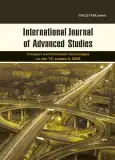Машинное обучение в прогнозировании теплопотерь в системах теплоснабжения
- Авторы: Шакиров А.А.1, Хабибрахманова А.И.1
-
Учреждения:
- Казанский государственный энергетический университет
- Выпуск: Том 14, № 4 (2024)
- Страницы: 113-133
- Раздел: Статьи
- Статья опубликована: 31.12.2024
- URL: https://bakhtiniada.ru/2328-1391/article/view/299475
- DOI: https://doi.org/10.12731/2227-930X-2024-14-4-322
- EDN: https://elibrary.ru/YQIADQ
- ID: 299475
Цитировать
Полный текст
Аннотация
Обоснование. В исследовании представлено применение методов машинного обучения для прогнозирования теплопотерь в системе теплоснабжения города Казань на основе данных за период 2020–2023 годы. Прогнозирование теплопотерь позволяет повысить эффективность работы системы теплоснабжения, снизить затраты на производство и транспортировку тепла. В работе рассматриваются различные модели машинного обучения, такие как линейная регрессия, ансамблевые методы (случайный лес, градиентный бустинг) и нейронные сети, а также проводится оценка их точности и применимости в контексте городской инфраструктуры.
Цель – повышение точности прогнозирования теплопотерь в системе теплоснабжения города Казань с целью оптимизации работы и снижения эксплуатационных затрат.
Материалы и методы. Исследование базируется на операционных данных системы теплоснабжения, погодных данных, а также инфраструктурных характеристиках трубопроводов. Основные методы исследования включают линейную регрессию, методы регуляризации (Лассо, гребневая регрессия), ансамблевое обучение (случайный лес и градиентный бустинг) и многослойный перцептрон (MLP). Для оценки моделей использовались метрики MSE, MAPE и R2, а также кросс-валидация.
Результаты. Проведенный анализ показал, что методы машинного обучения, особенно градиентный бустинг и нейронные сети, позволяют достичь высокой точности прогнозирования теплопотерь (R² = 0,89). Применение данных методов способствует повышению энергоэффективности и снижению эксплуатационных затрат в теплоснабжающих системах.
Об авторах
Арслан Айнурович Шакиров
Казанский государственный энергетический университет
Автор, ответственный за переписку.
Email: shakirov.aa@bk.ru
ORCID iD: 0000-0003-0477-3660
SPIN-код: 6508-3780
ResearcherId: T-3490-2018
преподаватель кафедры «Информационные технологии и интеллектуальные системы»
Россия, ул. Красносельская, 51, г. Казань, 420066, Российская ФедерацияАлсу Ильгамовна Хабибрахманова
Казанский государственный энергетический университет
Email: alsu_khisa@mail.ru
ORCID iD: 0009-0005-3751-3082
SPIN-код: 3130-8620
Scopus Author ID: 57196030218
кандидат технических наук, доцент кафедры «Информационные технологии и интеллектуальные системы»
Россия, ул. Красносельская, 51, г. Казань, 420066, Российская ФедерацияСписок литературы
- Алтынбаев А.Р. Искусственный интеллект. Использование интеллектуальных систем учета энергоресурсов в системе электроснабжения предприятия // Вестник науки. 2024. Т. 2, № 6(75). С. 2180-2191.
- Натальсон А.В. Разработка моделей машинного обучения для прогнозирования экономической эффективности бизнес-процессов // Экономика и управление: проблемы, решения. 2024. Т. 5, № 4(145). С. 164-170. https://doi.org/10.36871/ek.up.p.r.2024.04.05.021
- Куценко С.М. Оптимизация производства в энергетической отрасли при использовании искусственного интеллекта // Экономика и предпринимательство. 2024. № 6(167). С. 391-394. https://doi.org/10.34925/EIP.2024.167.6.081
- Обайди А.А.Х. Управление жизненным циклом объектов капитального строительства нейросетевым прогнозированием теплопотерь здания: диссертация на соискание ученой степени кандидата технических наук. 2024. 191 с.
- Мельников Д.С. Разработка метода выявления теплопотерь на теплосетях города Архангельска на основе цифровых данных // Вестник науки. 2023. Т. 4, № 8(65). С. 302-306.
- Сибгатов А.Р. Влияние температурного графика тепловых сетей на Тепловые потери трубопроводов / А. Р. Сибгатов, Г. М. Ахмерова // Актуальные проблемы энергетики АПК: Материалы XIII Национальной научно-практической конференции с международным участием, Саратов, 29–30 апреля 2022 года. Саратов: Амирит, 2022. С. 147-150.
- Minimization of Heat Losses in District Heating Networks by Optimizing their Configuration / V. Skochko, V. Solonnikov, O. Pohosov [et al.] // Problems of the Regional Energetics. 2024. No. 3(63). P. 182-195. https://doi.org/10.52254/1857-0070.2024.3-63.15
- Жамалов А. Батареяның автономды резервуарының жылу шығынын есептеу әдiсi / А. Жамалов, А. О. Бердiғожа // Л.Н. Гумилев атындағы Eуразия ұлттық университетiнiң хабаршысы. Физика. Астрономия сериясы. 2021. No. 1(134). P. 79-85. https://doi.org/10.32523/2616-6836-2021-134-1-79-85
- Evaluating different artificial neural network forecasting approaches for optimizing district heating network operation / L. Frison, S. Gölzhäuser, M. Bitterling, W. Kramer // Energy. 2024. Vol. 307. P. 132745. https://doi.org/10.1016/j.energy.2024.132745
- Improved day ahead heating demand forecasting by online correction methods / F. Bünning, P. Heer, R. S. Smith, J. Lygeros // Energy and Buildings. 2020. Vol. 211. P. 109821. https://doi.org/10.1016/j.enbuild.2020.109821
- Салтанаева Е.А. Сравнение традиционных методов машинного обучения и глубокого обучения / Е. А. Салтанаева, А. А. Шакиров, А. Р. Гимаева // Научно-технический вестник Поволжья. 2023. № 12. С. 379-381.
- Садриев Р.Р. Применение искусственного интеллекта для оптимизации энергопотребления в многоквартирных домах / Р. Р. Садриев, А. И. Кушакова, Р. С. Зарипова // Приборостроение и автоматизированный электропривод в топливно-энергетическом комплексе и жилищно-коммунальном хозяйстве: материалы IХ Национальной научно-практической конференции, посвященной 55-летию КГЭУ, Казань, 07–08 декабря 2023 года. Казань: Казанский государственный энергетический университет, 2024. С. 223-225.
- Моделирование потребления невозобновляемой энергии в мире / Л. А. Шильдт, Н. Г. Бикеева, К. В. Байдуганова, Г. В. Шильдт // Вестник УГНТУ. Наука, образование, экономика. Серия: Экономика. 2024. № 3(49). С. 35-47. https://doi.org/10.17122/2541-8904-2024-3-49-35-47
- Rakhimov Z. Linear regression with data missing not at random: bootstrap approach / Z. Rakhimov, N. Rahimova // Economic Development and Analysis. 2024. Vol. 2, No. 4. P. 492-502. https://doi.org/10.60078/2992-877X-2024-vol2-iss4-pp492-502
- Cui K. Classification accuracy analysis using a random forest model // Актуальные проблемы авиации и космонавтики, 10–14 апреля 2023 года, 2023. С. 123-125.
- Цвенгер И.Г. Машинное обучение с управляемой регрессией в электроэнергетике // Наука, инновации, общество: актуальные вопросы и современные аспекты. Пенза: Наука и Просвещение, 2024. С. 196-215.
- Разработка моделей среднесрочного прогнозирования электропотребления в изолированно работающих энергосистемах на основе ансамблевых методов машинного обучения / С. М. Асанова, Д. С. Ахьеев, С. А. Дмитриев [и др.] // Известия НТЦ Единой энергетической системы. 2021. № 1(84). С. 32-39.
- Натальсон А.В. Цифровые двойники в промышленности: достижения и основные ошибки внедрения // Экономика и предпринимательство. 2024. № 9(170). С. 1138-1141. https://doi.org/10.34925/EIP.2024.170.9.212
- Хамитов Р.М. Оптимизация сервисного обслуживания в электросетевом комплексе методами машинного обучения / Р. М. Хамитов, Н. Д. Новоселов // Вестник НЦБЖД. 2024. № 3(61). С. 95-103.
Дополнительные файлы










